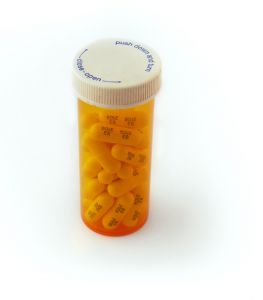The U.S. Food and Drug Administration is increasing warnings about Topamax, an anti-seizure and migraine medication, amid reports of birth defects, according to a report in the Wall Street Journal.
Florida attorneys handling Topamax complaints continue to see data suggesting a high risk of cleft palates and cleft lips in infants whose mothers were prescribed the drug during or even before pregnancy.

The drug, which is topiramate, is sold by Johnson & Johnson under the brand name Topamax but is also available in a generic. Research suggest it may prevent the lip or palate of a newborn infant from fusing properly during the first trimester. It is not Johnson & Johnson’s only high-profile issue involving defective medical products — the company has also been forced to recall its DePuy hip replacement system after health officials in the U.K cited a high failure rate and metal shavings in the blood.
Unfortunately, Topamax is the latest black eye for the FDA, which has come under increasing fire for permitting dangerous drugs or defective medical devices to make it to market. The government watchdog relies upon the research of drug makers, which stand to make billions, in approving a new medicine for sale. Many of the human trials are being conducted in third-world countries, far from the prying eyes of regulators. And even when the agency has information that a medicine is likely dangerous, it has been accused of failing to act to protect the public — the risks of Avandia, a popular diabetes drug, were known for years before the government finally got serious with restrictions late last year.
Florida Topamax lawyers in Fort Myers and throughout the state understand the risks and can assist families dealing with a birth defect as a result of dangerous or defective pharmaceuticals or instances of medical malpractice.
In this case, topiramate is approved to treat seizures and epilepsy. It is also used in the weight-loss drug Qnexa, which was rejected last year by the FDA over concerns about birth defects.
The North American Antiepileptic Drug Pregnancy Registry found problems in 1.4 percent of infants exposed to topiramate during the first trimester — or about 1 of every 65 infants. Those findings confirm data being reported by officials in the United Kingdom.
The drug’s risks had previously been placed in Category C (meaning no human data available). But it is now being elevated to Category D, meaning evidence of fetal risk is present but the benefits may still outweigh the risks in certain situations.
Johnson & Johnson made $2.7 billion on the drug before losing patent protection in 2008. Generics are now available, however the company still made $538 million last year. The company pleaded guilty last year to promoting the drug for unapproved uses and paid an $81.5 million fine.
If your family is dealing with a Florida birth defect and the birth mother was prescribed Topamax or a generic equivalent containing topiramate, contact Associates and Bruce L. Scheiner, Attorneys for the Injured, today for a free and confidential appointment to discuss your rights. Call 1-800-Dial-BLS.
 Florida Injury Lawyer Blog
Florida Injury Lawyer Blog





